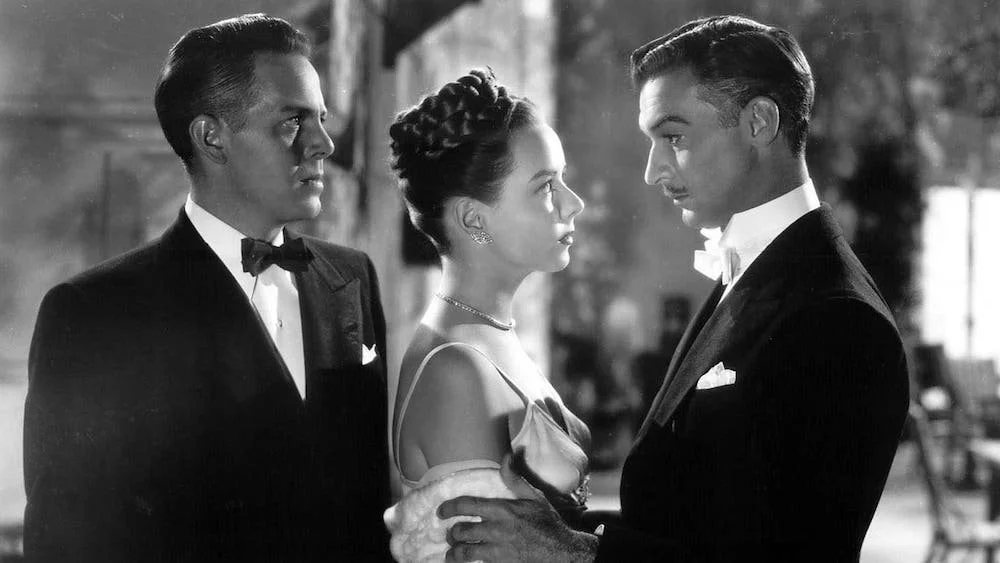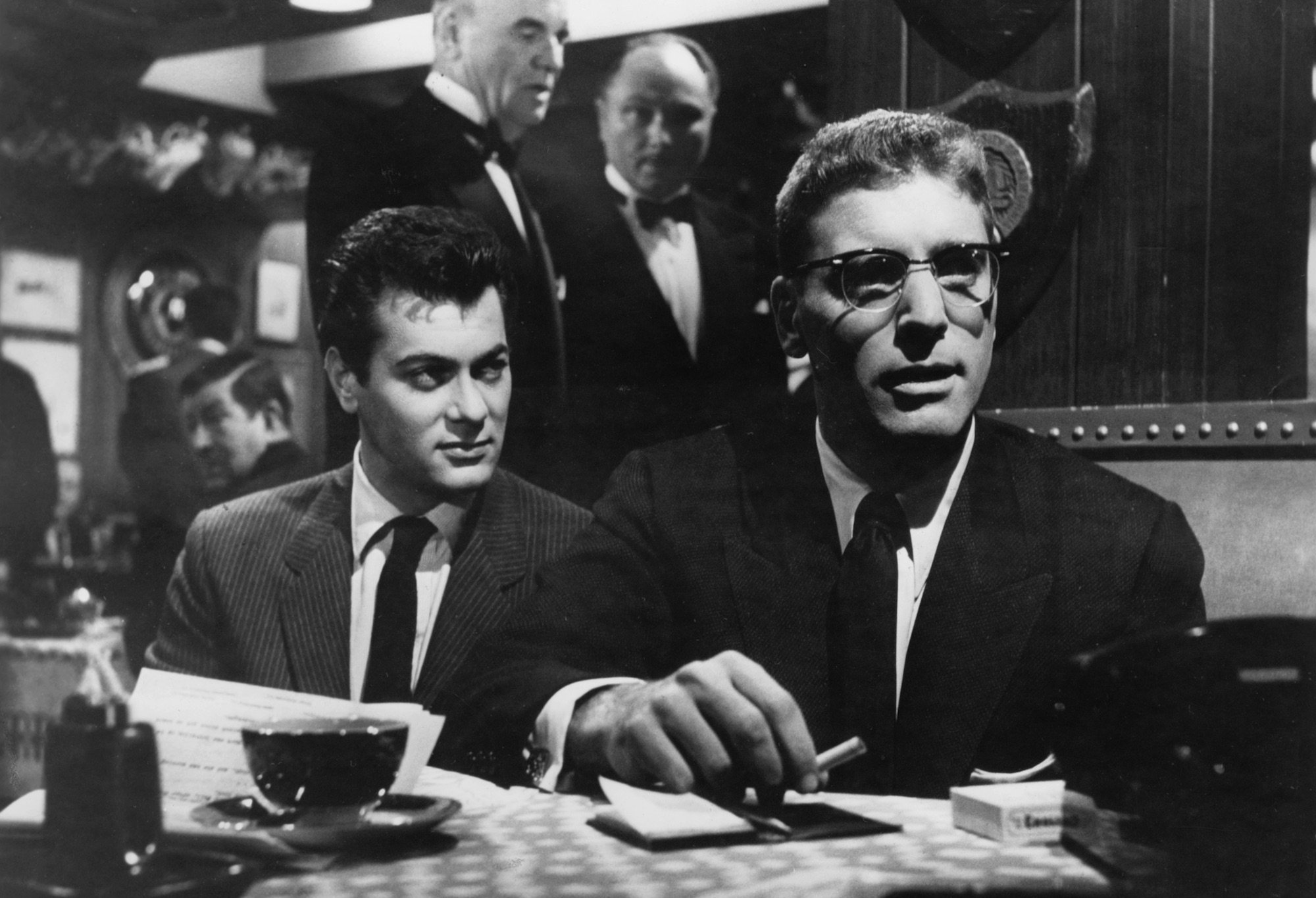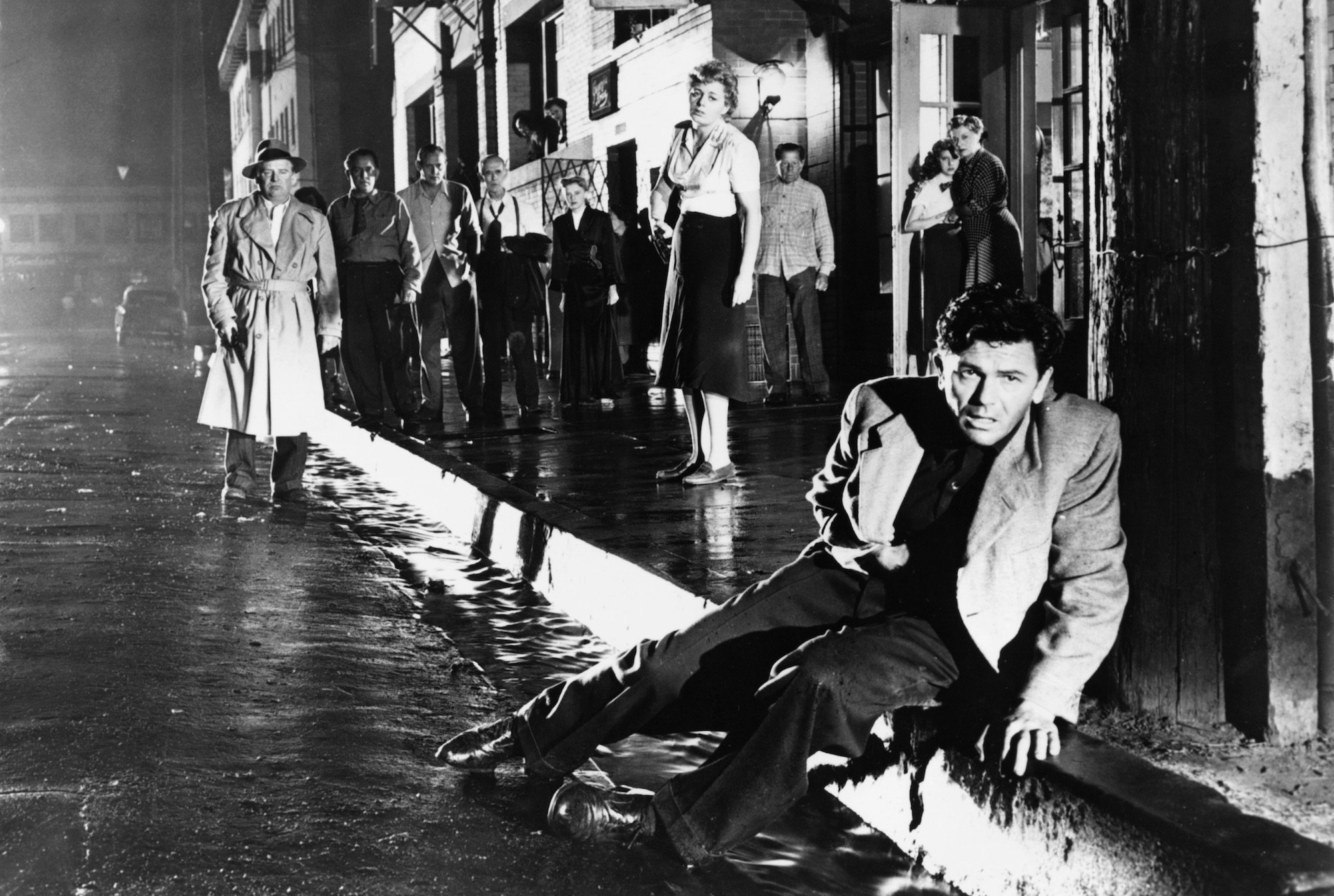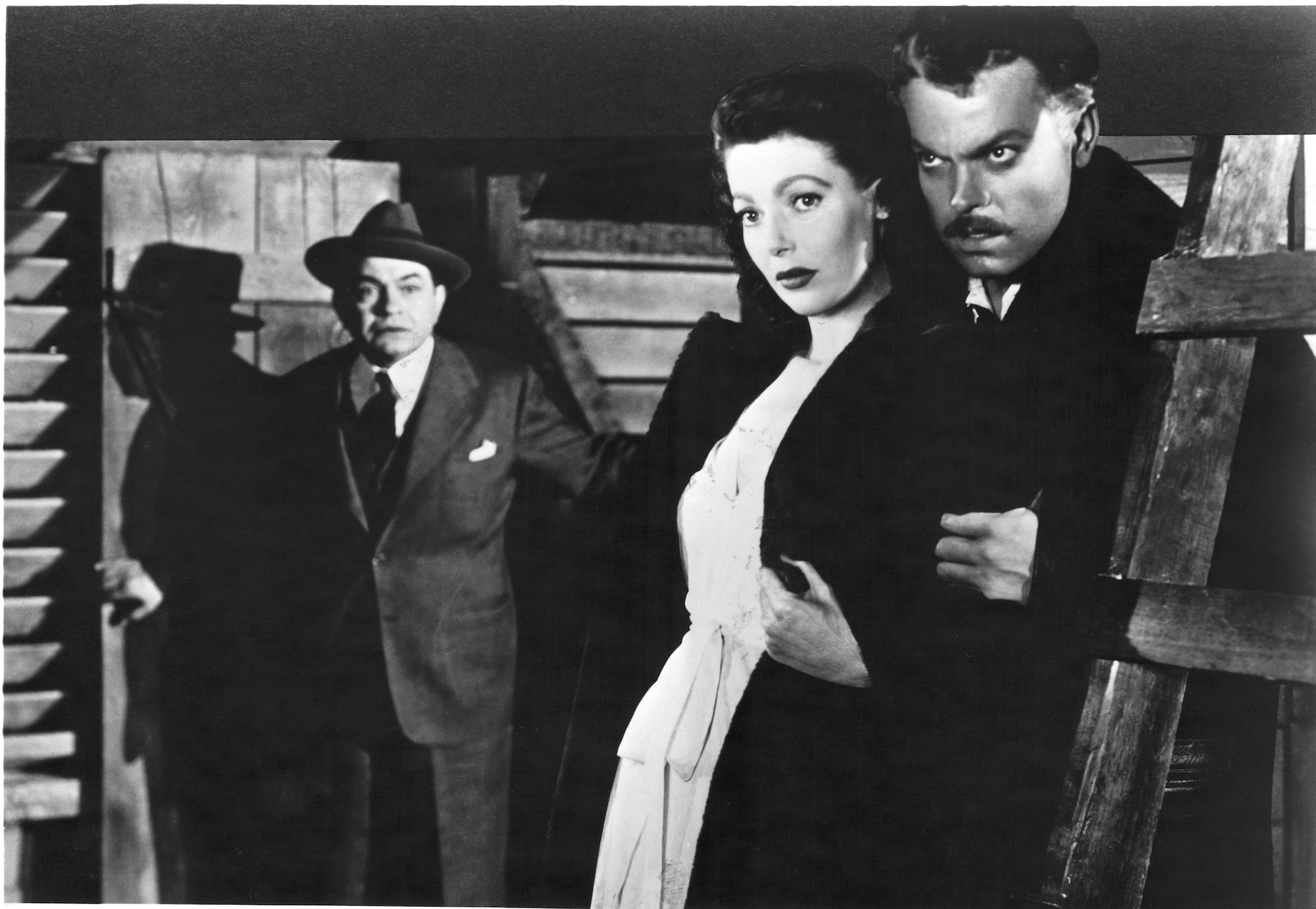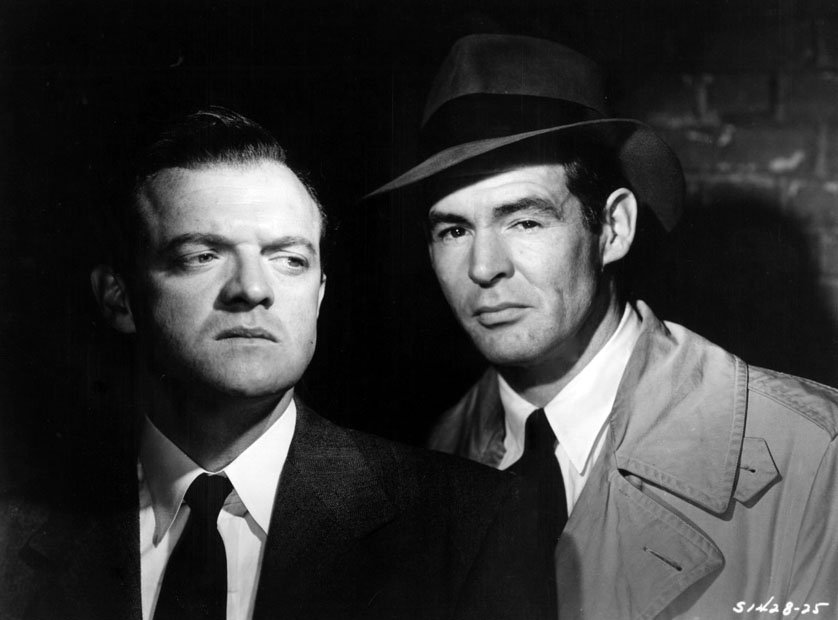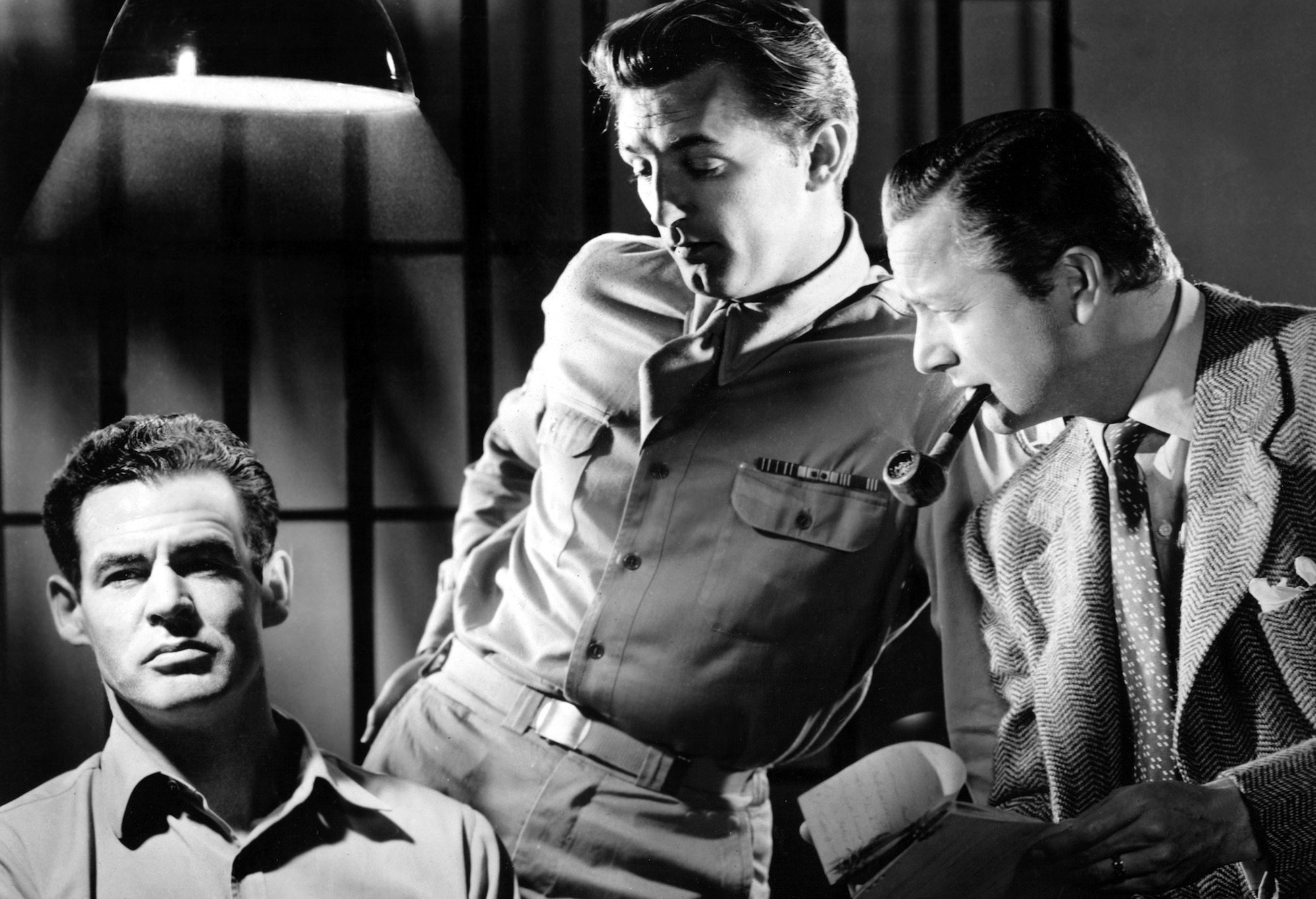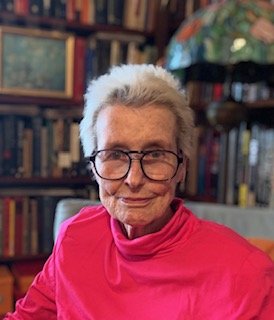Detour (7:30 pm)
1945 / 68 mins / b/w
Dir. Edgar G. Ulmer / Sc. Martin Goldsmith / Cine. Benjamin H. Kline
Cast: Claudia Drake, Tom Neal, Ann Savage
4K DCP courtesy of Janus Films
“He Went Searching for Love...but Fate Forced a DETOUR to Revelry...Violence...Mystery!”
European émigrés directed six of the 11 films at this year’s Kit Noir Festival. Four of those directors – Billy Wilder, Robert Siodmak, Fred Zinnemann, and Detour’s Edgar G. Ulmer – even collaborated on a single film, the 1930 German drama People on Sunday. The four filmmakers, all Jewish, would leave Europe within a few years to work in America, escaping the rise of fascism.
Wilder and Siodmak went on to make films for the major studios, while Ulmer remained a purveyor of B-movies. The same year Double Indemnity earned seven Oscar nominations, Ulmer shot Detour on a small budget in under two weeks with no big-name talent. Both films, it’d turn out, would become essential entries in the noir canon: one as prestige cinema, the other as scrappy B-film. As Noah Isenberg has argued, one can draw a clear parallel between the down-on-his-luck protagonist of Detour and Ulmer himself. Both men, after all, are underappreciated artists who amble into California without much purpose. The story of a reluctant couple-on-the-run, Detour rises above B-movie anonymity thanks in part to its low-budget ingenuity and Ann Savage’s radical performance. Savage was a B-movie regular who appeared in 11 films in 1943 alone. Her bug-eyed, unvarnished hostility overwhelms Detour and distances her from the typically glamorous femme fatales of the era.
Martin Goldsmith’s original novel contained many references to Judaism and Jewish culture, all of which he cut for the script (Alexander Roth, for example, became Al Roberts). As Isenberg surmises, perhaps 1945, one year after the war’s end, was “not an especially hospitable moment for an ethnic allegory about Jews in America.”
Still from 'Ruthless'
Ruthless (9:15 pm)
1948 / 104 mins / b/w
Dir. Edgar G. Ulmer / Sc. Alvah Bessie, S.K. Lauren, Gordon Kahn / Cine. Bert Glennon
Cast: Zachary Scott, Martha Vickers, Sydney Greenstreet
35mm print courtesy of UCLA
“Why Must You Destroy Everyone Who Helps You?”
Based on Dayton Stoddart’s popular novel Prelude to Night (1945) and starring big-studio actors Sidney Greenstreet and Zachary Scott (both on loan from Warner Bros.), Ruthless has come to be known as Ulmer’s “Citizen Kane in miniature.” It is also a standout example of what critic Thom Anderson describes as film gris, a politically-minded subset of film noir often distinguished by contributions from soon-to-be-blacklisted filmmakers.
Like Welles’ 1941 masterpiece, Ruthless tells a story of a wealthy tycoon’s financial rise and moral decay through a series of flashbacks. As Ulmer later put it, the film was intended as “a very bad indictment against 100 percent Americanism,” depicting “the complete evilness and ruthlessness about money.” A mainstream New Dealer, Ulmer was rarely this outspoken. In this case, though, the film’s critical edge was unquestionably sharpened by the script contributions of two future members of the Hollywood Ten, both Jewish: the Columbia-educated Alvah Bessie (uncredited) and Hungarian-born Gordon Kahn.
Despite its anti-capitalist themes, the film represents an obvious step up in production values from the bargain-basement Detour. PRC (Producers Releasing Corporation, euphemistically known as “Poverty Row Cinema”) had, by this point, been taken over and absorbed into Eagle-Lion, which released Ruthless among a slew of ambitious noirs in 1947-1948 (T-Men, Canon City, and He Walked by Night, among others).
Back in Black: Edgar G. Ulmer’s Detour and Ruthless
Introductions by Noah Isenberg
This pair of introductions will reevaluate two landmark noirs from the vantage point of Edgar G. Ulmer’s professional life and career on the margins of Hollywood. They will look at how Ulmer managed to convey his personal style through a dark lens, capturing much of the era’s pessimism and existential dread in the very character and sensibility articulated in two of his most gripping films. Made at the apex of Ulmer’s extended stint at Producers Releasing Corporation (PRC), the bargain basement studio for which he churned out eleven Bs in four short years, the gritty, nasty, and unrelentingly bleak Detour stands as Ulmer’s crowning achievement. With Tom Neal as sad sack Al Roberts, a down-and-out jazzman on his way to the coast, and Ann Savage as his acid-tongued nemesis Vera, perhaps the most lethal femme fatale of all time, Ulmer offers a psychologically taut road trip that sours faster than milk left out in the blazing sun. Recently given a painstaking 4K restoration, undertaken by the Academy Film Foundation and released by Janus Films, Detour has reached new heights in the pantheon of film noir. Often thought of as Ulmer’s Citizen Kane on the cheap, Ruthless serves as study of American capitalism and rapacious greed — scripted, without formal credit, by blacklisted writer Alvah Bessie — and boasts the A-list acting talent of Zachary Scott and Sidney Greenstreet, both on loan-out from Warner Bros. Chronicling the rise and fall of Horace Vendig (Scott), a tale lifted from the pages of Dayton Stoddart’s Prelude to Night, the film presents an archetypal man who craves and ultimately captures all that others have. Its core message, rife with delicious cynicism, hasn’t lost any of its timeliness.
About Noah Isenberg
Noah Isenberg is the George Christian Centennial Professor and Chair of the Department of Radio-Television-Film at the University of Texas at Austin. He is the author, most recently, of We’ll Always Have ‘Casablanca’: The Life, Legend, and Afterlife of Hollywood’s Most Beloved Movie (W.W. Norton, 2017; Faber & Faber, 2017), which was a Los Angeles Times bestseller and also named an Editor’s Choice by the New York Times Book Review. His other books include: Edgar G. Ulmer: A Filmmaker at the Margins (California, 2014), which was selected by Huffington Post for its Best Film Books of 2014; Detour (British Film Institute, 2008), a book-length study of Ulmer’s acclaimed low-budget film noir; and, as editor, Weimar Cinema: An Essential Guide to Classic Films of the Era (Columbia, 2009), which was named a Choice Outstanding Academic Title. His current projects include a book on Billy Wilder’s Some Like It Hot for Norton and Faber; a short interpretive biography of Wilder for the Yale Jewish Lives series; and an edited volume of Wilder’s journalistic writing from Weimar Berlin for Princeton.
In support of his work, Isenberg has been awarded grants and fellowships from the National Endowment for the Humanities, the Fulbright Commission, the International Research Center for Cultural Studies in Vienna, and the Alexander von Humboldt Foundation. He has served for seven years as book review editor of Film Quarterly and is currently a member of its editorial board. He is a standing fellow of the New York Institute for the Humanities, and in 2015-2016 was awarded an inaugural NEH Public Scholar research grant. His writing has appeared in such diverse publications as The Nation, The New Republic, The Daily Beast, Salon, the Times Literary Supplement, Bookforum, New York Review of Books Daily, The Paris Review Daily, Los Angeles Review of Books, The Criterion Collection, Film Comment, Film Quarterly, the Wall Street Journal and the New York Times Book Review.


